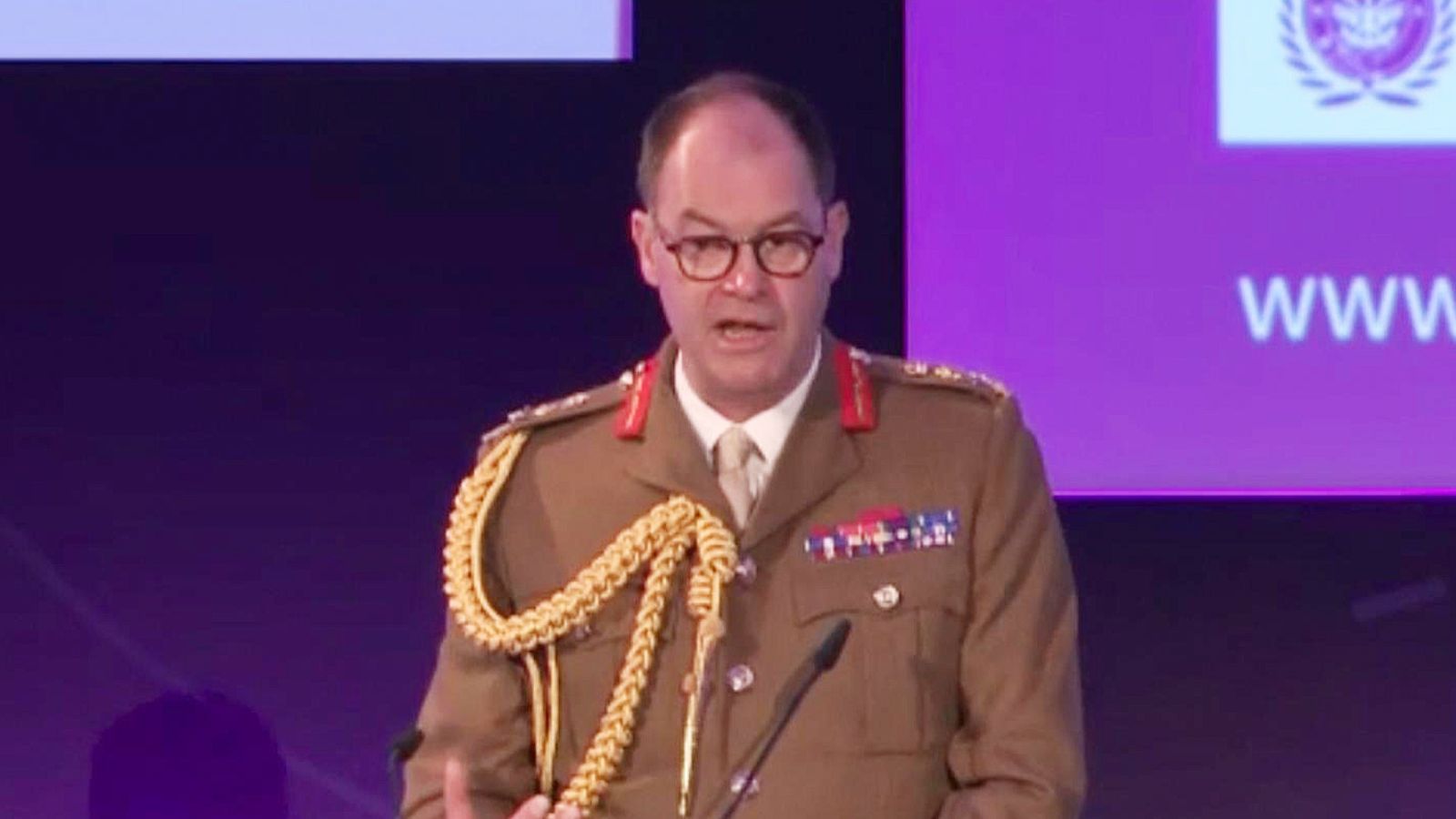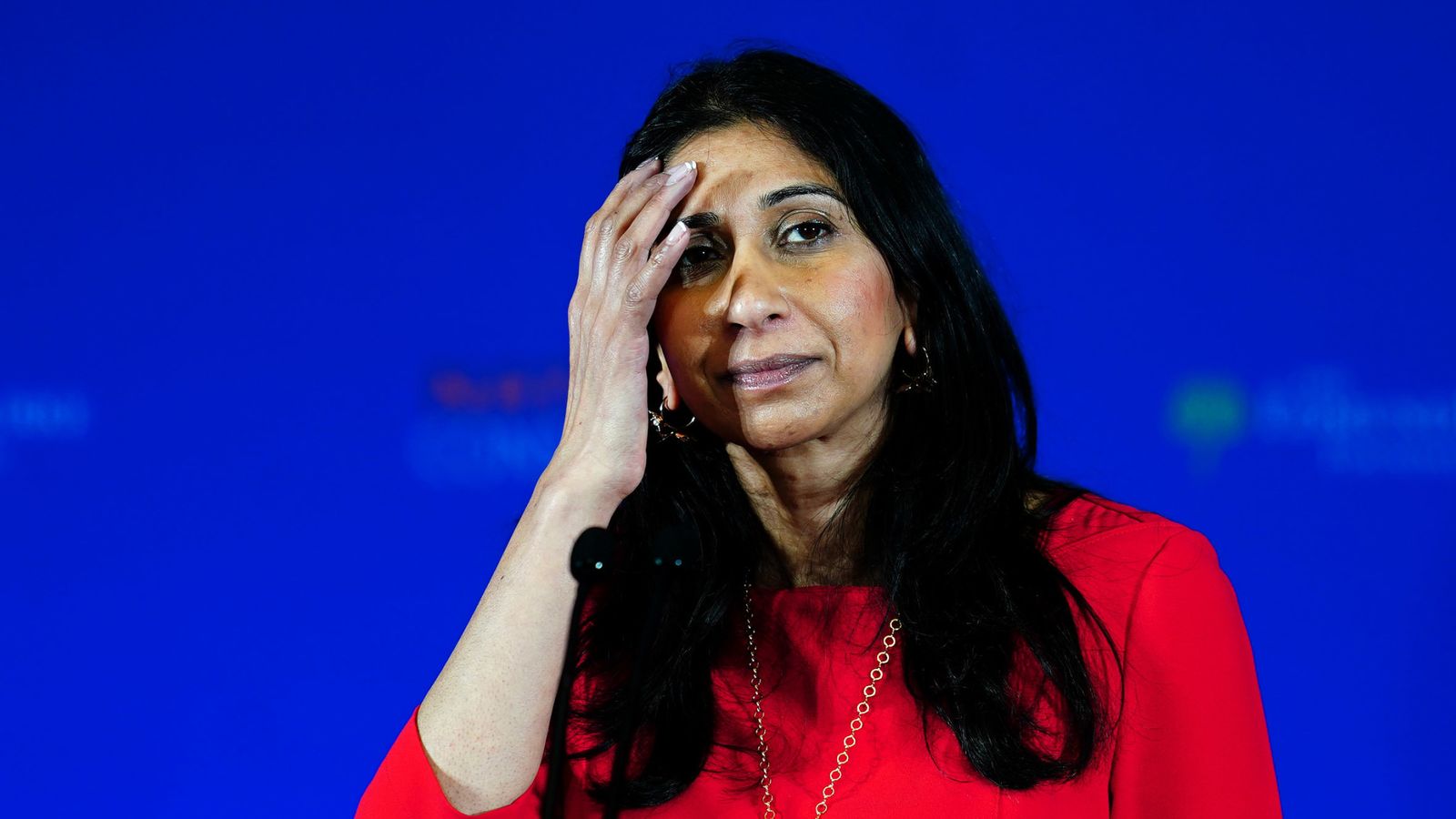The head of the army will step down next year after an unusually short term, removing a key voice who has warned about the need to rebuild the UK’s land forces after decades of cuts.
General Sir Patrick Sanders only became chief of the general staff last June, yet Sky News understands that interviews for his replacement will take place next month.
He will stay in post until next year, a defence source said, while noting the early exit of such a senior officer had a whiff of “will no one rid me of this troublesome priest” about it.
The source was referring to the iconic quote attributed to King Henry II about Thomas Becket that led to the then Archbishop of Canterbury being killed in 1170.
General Sanders is “not biddable”, the source said.
Officials in the Ministry of Defence are finalising a refresh of a blueprint on the shape and size of the armed forces, but funding constraints are hampering certain ambitions.
Experts say there is a desire in some quarters for further cuts to the size of the army to free up cash for much-needed modernisation plans for the army, Royal Navy and Royal Air Force.
Revealed: The military personnel turning to food banks as cost of living crisis hits
Army veterans sacked during ‘gay ban’ demand apology from Rishi Sunak
Confidence in RAF chief and his leadership team hits rock bottom, survey reveals
It means anyone who speaks out about the need to maintain manpower strength becomes a bit of an inconvenient voice, the experts added.
Army chiefs typically serve around three years in office unless they are promoted to become chief of the defence staff – the most senior military commander.
General Sanders, however, took over as head of the army having already served three years in charge of Strategic Command, meaning he will have held one of the top jobs in defence for a total of five years by the time he steps down.
Be the first to get Breaking News
Install the Sky News app for free
As army chief, he has been outspoken about the need to rebuild the UK’s warfighting capability in the wake of Russia’s war in Ukraine.
Britain’s combat power has been hollowed out by consecutive governments since the end of the Cold War.
In his most recent intervention, General Sanders stressed the need for “credible armed forces”.
He also cautioned against over-allocating funding to the Royal Navy and the Royal Air Force at the expense of the army simply because Britain is an island nation.
“Those who believe that our geography allows us to minimise investment on land or that we can simply hide behind the armies of other NATO contributors are simply wrong,” he said in a speech at the army’s annual land warfare conference this week.
Read more UK news:
Titan submersible: Pictures show wreckage recovered from sea
Girl, 13, missing – as three men arrested on suspicion of kidnap
Mother and stepfather ‘repeatedly abused’ 10-month-old baby before killing him, court told
General Sanders also spoke frankly about the dire state of his army’s warfighting platforms – such as armoured vehicles – which are being replaced but only over time.
“Many of our platforms are outdated and not fit for purpose,” he said.
Prime Minister Rishi Sunak and Chancellor Jeremy Hunt gave defence an additional £5bn over two years as part of their March budget – but this was less than half the money required, in the view of experts.
The army – which, like the other services, has a poor track record in procurement – plans to buy new kit, from air defence systems and longer-range missiles to new armoured vehicles.
But soaring inflation has eroded funding, meaning there remains a risk of capability gaps not being filled fast enough, according to multiple defence sources.
Ben Wallace, the defence secretary, will have the job of choosing the next army chief.
Commanders thought to be in the running include Lieutenant General Roly Walker, deputy chief of the defence staff and a former director of special forces, and Lieutenant General Sir Ralph Wooddisse, the current commander of land forces.
The Sun, which also reported that General Sanders would be stepping down, listed Lieutenant General Sharon Nesmith as being in the running too.
If successful, she would be the first female chief of the general staff.
In addition, The Sun reported Lieutenant General Nick Borton, commander of a UK-based NATO force called the Allied Rapid Reaction Corps, could be a contender.
An Army spokesperson said: “We are unable to comment on speculation surrounding the next Chief of the General Staff.”







